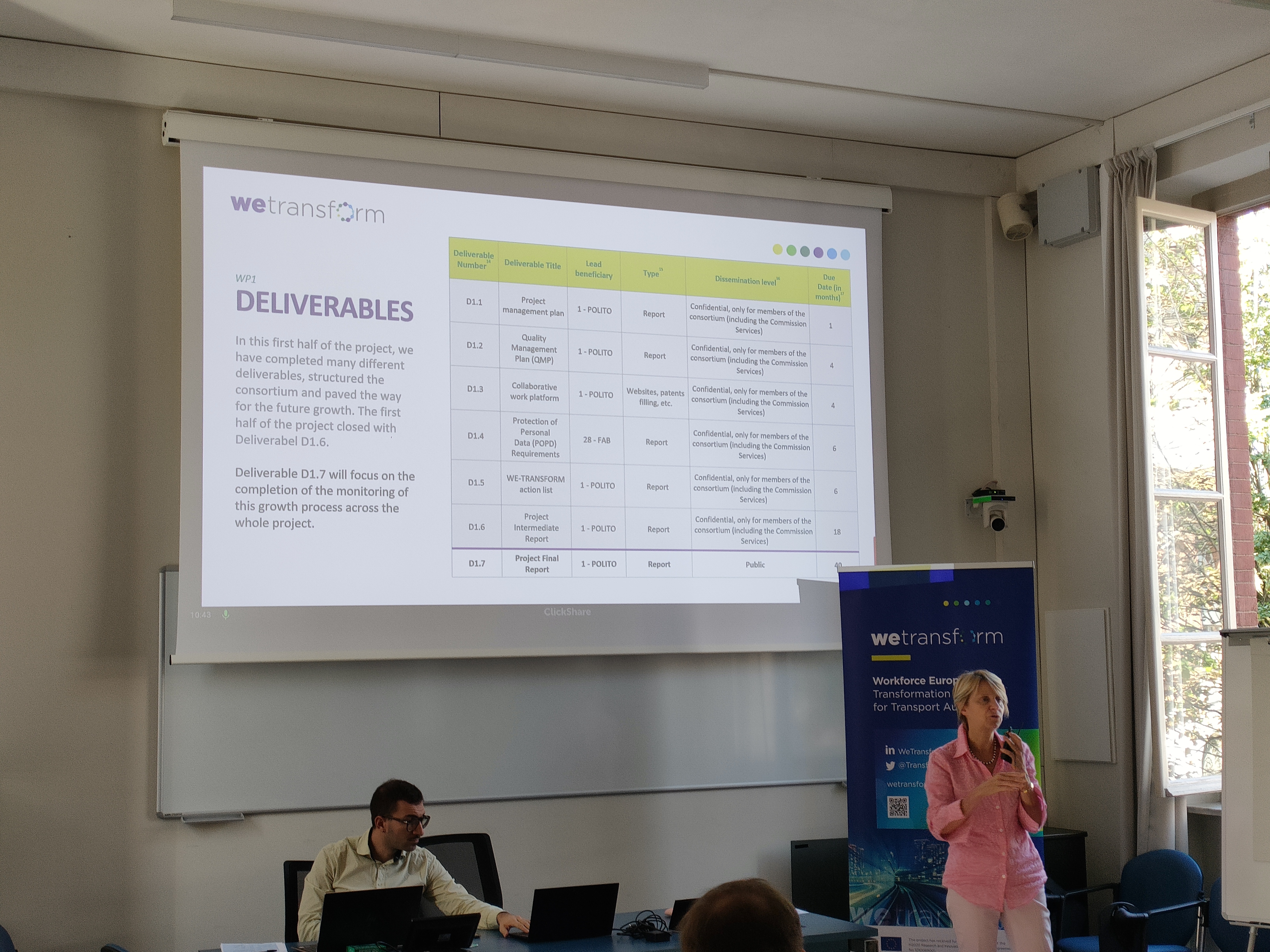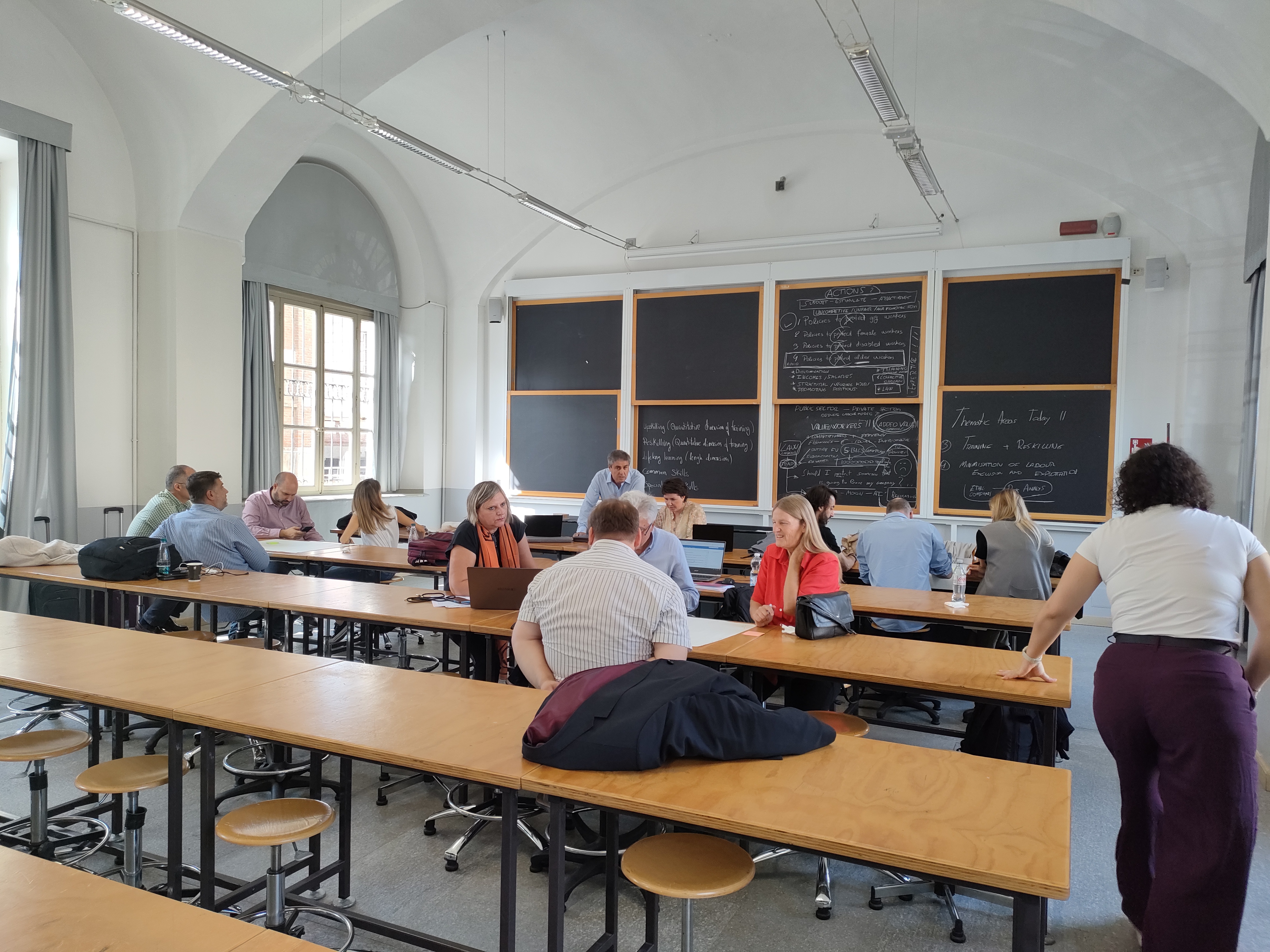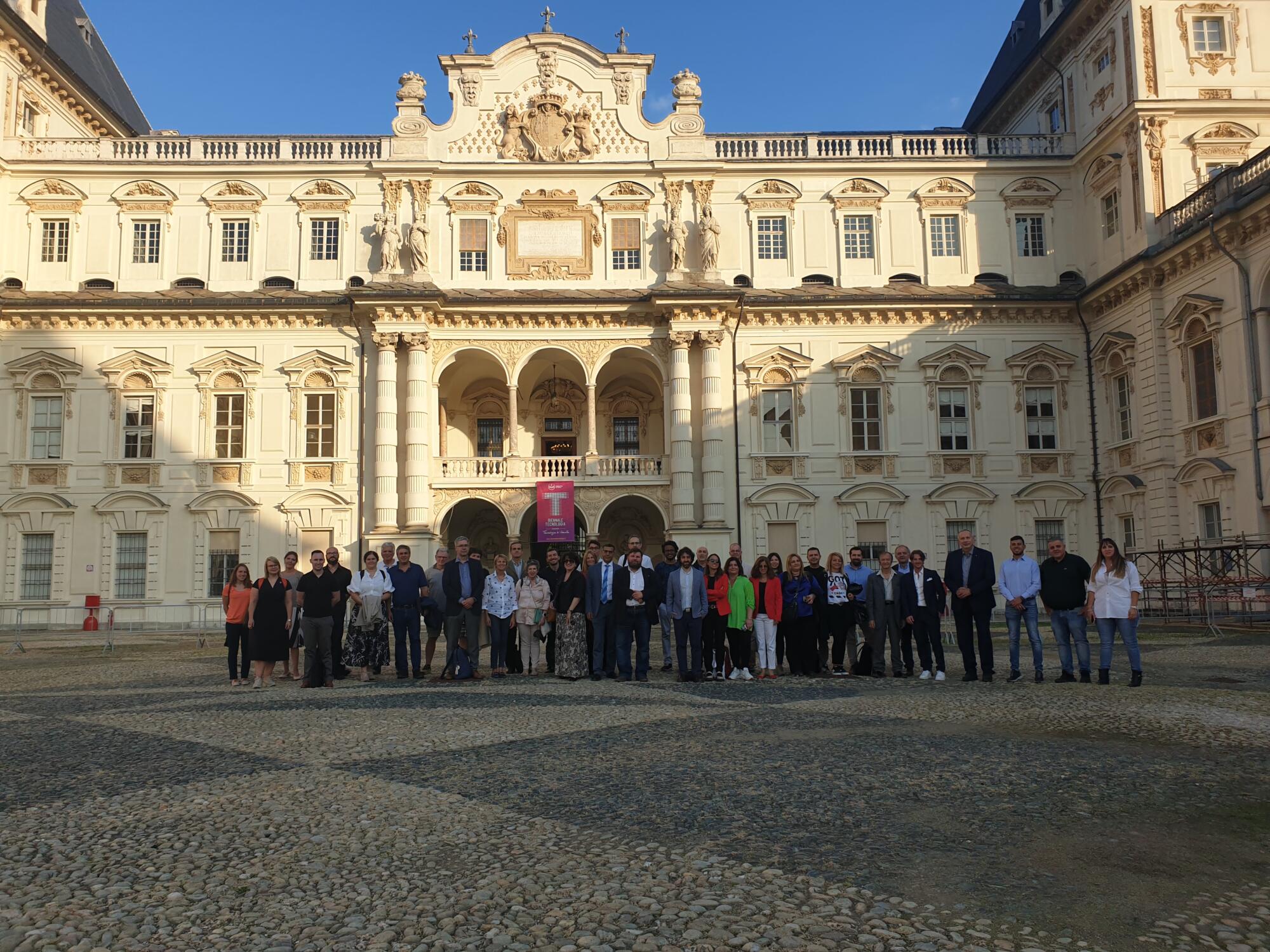Stakeholders define the future agenda for transport jobs with WE-TRANSFORM
At Turin's Castello de Valentino, WE-TRANSFORM invited stakeholders to define the future agenda for transport jobs and reflect on how the transport workforce is affected.
The EU H2020 project WE-TRANSFORM is moving towards its final stage of creating an agenda for policymakers to support the transport sector and its workforce as automation and digitalisation advance.
To realise this vision, the project emphasises fostering an inclusive dialogue involving a diverse range of stakeholders. From workers and employers to representatives of infrastructure and service providers across different transport modes. By pooling together the insights and expertise of these stakeholders, WE-TRANSFORM aspires to co-create a dynamic, action-focused policy agenda. Central to this mission is the Stakeholder Forum, which serves as a crucial hub for collaborative deliberation and knowledge exchange. Hosted by Politecnico de Torino, the last forum was recently held at their Castello de Valentino premises in Turin, Italy.
Initially, the project closely examined the current situation by developing a state-of-the-art report. The team aimed to understand both the opportunities and challenges of integrating more technology in transport systems. They studied the potential effects on workers' roles, responsibilities, and skills, and examined existing initiatives aimed at smoothing this transition.
As the project progresses, the focus is shifting from understanding the broader societal implications of increasing automation in the transport sector to designing the policy agenda. The progressively elaborated and debated recommendations will guide future policies. The goal is to ensure that, as the transport sector integrates more technology, it does so thoughtfully, considering the well-being and roles of workers. This effort is truly collaborative, drawing from the diverse expertise and perspectives, of different transport modes, and representing diverse links of the transport economic chain – including social dialogue partners.

Setting the course for an action-oriented agenda in transport
At the Turin Stakeholder Forum Workshop, discussions were deeply rooted in WE-TRANSFORM's analysis of the legal implications of transport automation. Four primary themes emerged: (1) public regulation, (2) industrial governance, (3) targeted training and reskilling, and (4) reducing labour exclusion. This discussion led to the identification of over 30 regulatory policies.
The goal was to go beyond mere discussion and define actionable, clear policies. This involved diving into the specifics, methods, timelines, and, most importantly, determining the key stakeholders who would turn these policies into reality.
The workshop was a melting pot of industry minds. Approximately 70 stakeholders attended the event, with notable representatives from entities such as Deutsche Bahn, ADIF, Metro of Athens, European Community Shipowners' Associations, and more. Cristina Pronello from Politecnico de Torino opened the event, summarising the project's milestones and setting the tone for the day's rich discussions.
From rules to roles: policy avenues for the future of transport workers
Similar to past Stakeholder forum workshops, participants convened in smaller groups to share the pressing concerns in their transport sector field. Likewise, the discussions integrated diverse perspectives and sparked in-depth reflections for a deeper collective understanding. Stakeholders highlighted the urgency of updating educational systems to keep up with rapid technological innovations. The maritime sector's unique challenges due to international regulations were discussed, contrasting with the challenges of metro representatives, who spoke about the current reality of automated driving systems in many cities.
A focal point of the conversation was the evolving nature of transport work. Research delegates indicated a shift in transport workers’ tasks: while certain roles might become obsolete, there's an anticipated rise in specialised roles in areas like cybersecurity. They emphasised the importance of shaping an education system where passion meets the profession. The potential of digitalisation, especially in attracting a diverse workforce, was highlighted, with a focus on its role in bringing women into traditionally male-dominated sectors.
The intricacies of budgeting and securing funding for digital and automated initiatives were investigated, touching upon the challenges posed by fluctuating annual budgets. The unpredictability of year-on-year budgets was mentioned as a hindrance in running certain operations and projects, stressing the influence of external stakeholders and funding sources. Meanwhile, the blend of public and private financing rejuvenates the sector, starting with a robust research foundation, but only replicable to certain transport sectors.
On talent attraction, initiatives aimed at schools, universities, and career fairs were discussed as potential strategies. The discussion concluded with a unanimous acknowledgement of the vital roles played by trade unions and the significance of corporate identity and responsibility in retaining talent.

Unlocking Mobility Workforce Insights: Key Takeaways
The Turin Stakeholder Workshop was a valuable platform for gathering insights from diverse mobility and transportation experts. Key takeaways highlighted by the participants included:
- Approach to Harmonisation: There is a need for a cohesive and comprehensive framework across the EU, advocating for common standards, safety regulations, and guidelines spanning multiple sectors, including work, transport, and training. Recognising the imperative of immediate to medium-term actions, stakeholders understand the interplays of each policy.
- Digital and Automatisation Co-Management: The value of collaboration between workers and top management in navigating the challenges and opportunities of digital transformation was emphasized. This includes addressing topics like algorithm and data management, and standardising practices to create an adaptable, resilient workforce.
- Empowering Collective Bargaining: Strengthening collective bargaining at the company level is necessary. This involves forging closer ties across company hierarchies and ensuring workers' active participation in decision-making processes.
- Significance of Structured Budgeting and Navigating Financial Challenges: Recognising the importance of earmarked funds for research, training, and studies, stakeholders stress the differences in capital investment challenges between public and private sectors and the need for a blended, holistic approach. Acknowledging the varying ease of capital investment between the public and private sectors, there's an emphasis on integrating infrastructure and human resources for a balanced, forward-thinking approach.
- Holistic Skills and Training Development: The importance of setting training standards was highlighted. Furthermore, advocating for enhanced corporate identities that not only facilitate professional growth but also reinforce worker-management relationships.
- Participatory Approach to Execution: All stakeholders recognised the essential roles of various EU bodies, trade unions, companies, and national bodies in the policy's swift and effective implementation.

